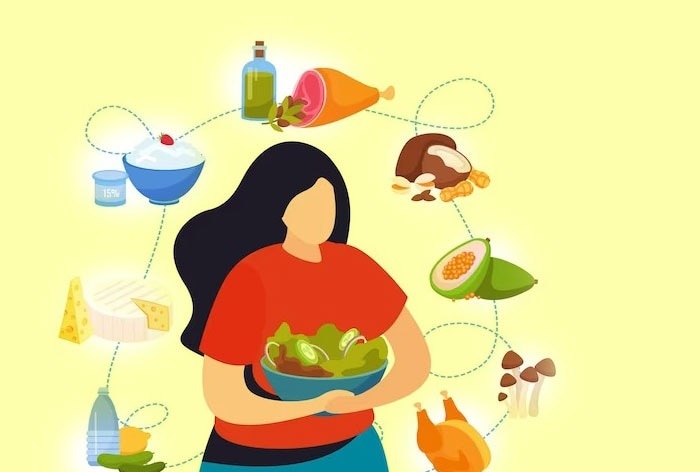A lot of PCOS sufferers discover that by making dietary and lifestyle adjustments, they may control their symptoms and lower their chance of developing other health issues.

PCOS Diet: Period irregularities or no menstruation are typical symptoms of polycystic ovarian syndrome (PCOS). Multiple ovarian cysts are frequently present in PCOS patients and are brought on by excessive production of androgens. There is no recommended diet for PCOS or polycystic ovarian syndrome. However, some methods, such as a diet low in inflammation, may help control some symptoms. Here is a list of the food items to stay to avoid if you have PCOS to reduce hormonal imbalances, inflammation, and insulin resistance. We will also discuss several meals that may be substituted for healthy living when dealing with PCOS.
PCOS: 10 FOODS TO EAT FOR BETTER MANAGEMENT
By lowering the impact of sugar on the blood sugar and slowing down digestion, high-fiber diets can help fight insulin resistance. Those who have PCOS may benefit from these foods:
- Leafy Greens
- Berries
- Nuts
- Green Tea
- Wholegrains
- Non-Starchy Fruits & Vegetables
- Eggs
- Brown Rice & Quinoa
- Cottage Cheese
- Avocado
PCOS: 10 FOODS TO AVOID FOR BETTER MANAGEMENT
If you’re following a PCOS diet, you might want to cut back on inflammatory items like fries and red meat as well as sugary drinks and snacks like soda and juice. Refined carbs should be avoided or greatly reduced since they increase insulin resistance and induce inflammation. These include highly processed meals like sweets, pastries, and anything else prepared with white flour. Here are a few food items you must avoid to manage your health better:
- Refined Carbs & Sugar
- Sugary Beverages
- High Glycemic Index Foods
- High Caffeine Beverages
- Alcohol
- Dairy Products
- Solid Fat
- Fried Food
- Processed Meat
- Food With Added Salt/Sugar
These meals do, however, frequently have wholesome, advantageous equivalents. For instance, if white toast and butter are often what you have for breakfast, consider switching to high-fibre whole-grain bread and olive oil or avocado.
A PCOS-friendly diet and other lifestyle adjustments may help you feel better and lessen some of the symptoms of the condition. A low-inflammatory diet, regular exercise, and a low-sugar diet can all help you lose weight.
